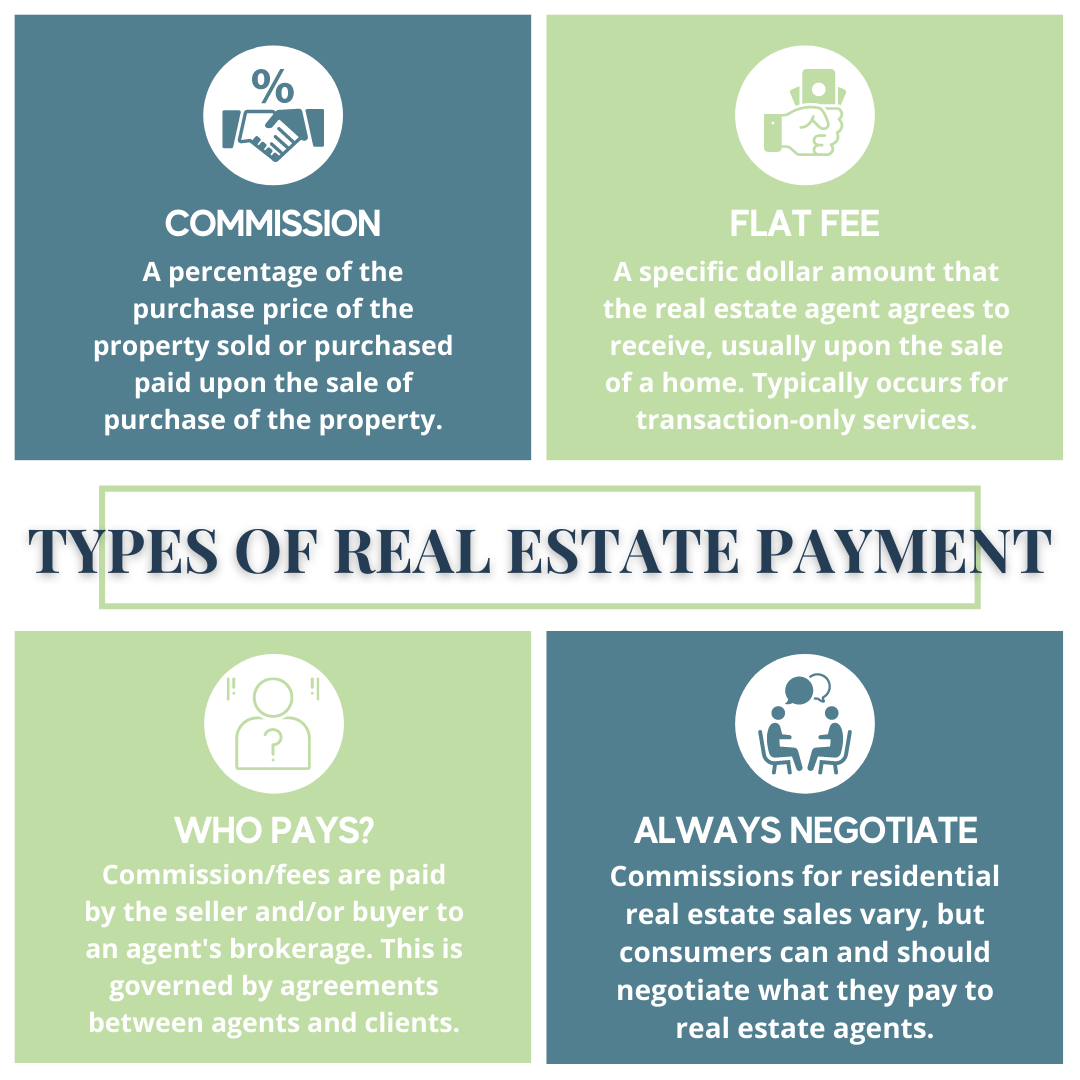
What's the difference between a Real estate agent and a real estate broker? These two functions are very different, so let's take a look at the differences. Whether you're looking to buy or sell a home, you may want to work with an agent or a broker. Both are beneficial, so your choice. To learn more, read our agent vs broker comparison article.
Real estate agent
Although there are differences in the roles of brokers and agents, they both play a vital role in ensuring a smooth home buying experience. Brokers handle legalities while buyers' agents negotiate offers and find properties. Brokers can also hold escrow money and assist with the paperwork. A buyer's agent has the job of finding the perfect house for buyers and helping them navigate the process. In certain jurisdictions, agents may be called brokers.

Realtors are licensed real estate professionals, while agents are licensed salespeople. Both are required to hold real estate licenses by law. They must follow a strict code. Real estate agents, for example, must be members of NAR and adhere to its code of ethics. A broker must be a licensed real estate agent. Both roles are distinct.
Agent for the buyer
It is important to consider your personal circumstances before deciding on a buyer’s agent or broker. The former is legally required to represent the buyer's best interests. A buyer's agency, on the contrary, has a fiduciary relationship with the seller. Buyer's agents can often be more helpful to buyers than their counterparts who have the benefit from an outsider’s viewpoint. Buyers should understand the advantages and disadvantages of working with an agent.
A buyer's agents can perform a number of services, including market analysis. This includes evaluating comparable sales. It also helps to determine the offer price based on property features. The buyer's agent can also help with the preparation of a co-op board bundle or other contract terms. The buyer's agent can also help you navigate the potential speed bumps that could cause a deal to be canceled. Agents can help you avoid making costly mistakes that could endanger your deal.
Insurance broker
If you're looking to buy insurance, deciding between an insurance broker and an agent can be an important decision. The state licenses insurance agents. They are often tied to a small number of insurance companies. Brokers, on other hand, allow you to compare multiple options, which can save you significant time. Here are a few of the reasons you should choose to work with an insurance broker.

Their representation is the most important difference between an agent and an broker. An insurance agent represents the insurer, while a broker represents the insurance buyer. A broker can represent either an independent or captive company. A broker can represent several different insurance companies and will usually have a broader network of contacts. However, insurance agents can represent one particular insurer, while a broker represents many. This is a significant difference.
FAQ
How long will it take to sell my house
It all depends upon many factors. These include the condition of the home, whether there are any similar homes on the market, the general demand for homes in the area, and the conditions of the local housing markets. It can take anywhere from 7 to 90 days, depending on the factors.
Should I use an mortgage broker?
A mortgage broker can help you find a rate that is competitive if it is important to you. Brokers can negotiate deals for you with multiple lenders. Brokers may receive commissions from lenders. Before signing up for any broker, it is important to verify the fees.
Do I need flood insurance?
Flood Insurance covers flooding-related damages. Flood insurance protects your belongings and helps you to pay your mortgage. Learn more about flood insurance here.
What are the drawbacks of a fixed rate mortgage?
Fixed-rate loans tend to carry higher initial costs than adjustable-rate mortgages. If you decide to sell your house before the term ends, the difference between the sale price of your home and the outstanding balance could result in a significant loss.
Is it possible to quickly sell a house?
If you have plans to move quickly, it might be possible for your house to be sold quickly. But there are some important things you need to know before selling your house. First, you will need to find a buyer. Second, you will need to negotiate a deal. Second, you need to prepare your house for sale. Third, you must advertise your property. Finally, you need to accept offers made to you.
What is a Reverse Mortgage?
A reverse mortgage is a way to borrow money from your home without having to put any equity into the property. This reverse mortgage allows you to take out funds from your home's equity and still live there. There are two types of reverse mortgages: the government-insured FHA and the conventional. With a conventional reverse mortgage, you must repay the amount borrowed plus an origination fee. FHA insurance covers the repayment.
Statistics
- This means that all of your housing-related expenses each month do not exceed 43% of your monthly income. (fortunebuilders.com)
- This seems to be a more popular trend as the U.S. Census Bureau reports the homeownership rate was around 65% last year. (fortunebuilders.com)
- The FHA sets its desirable debt-to-income ratio at 43%. (fortunebuilders.com)
- It's possible to get approved for an FHA loan with a credit score as low as 580 and a down payment of 3.5% or a credit score as low as 500 and a 10% down payment.5 Specialty mortgage loans are loans that don't fit into the conventional or FHA loan categories. (investopedia.com)
- Based on your credit scores and other financial details, your lender offers you a 3.5% interest rate on loan. (investopedia.com)
External Links
How To
How to Manage A Rental Property
You can rent out your home to make extra cash, but you need to be careful. We will show you how to manage a rental home, and what you should consider before you rent it.
Here's how to rent your home.
-
What should I consider first? Before you decide if your house should be rented out, you need to examine your finances. If you are in debt, such as mortgage or credit card payments, it may be difficult to pay another person to live in your home while on vacation. Also, you should review your budget to see if there is enough money to pay your monthly expenses (rent and utilities, insurance, etc. It might not be worth the effort.
-
How much will it cost to rent my house? There are many factors that influence the price you might charge for renting out your home. These include factors such as location, size, condition, and season. Remember that prices can vary depending on where your live so you shouldn't expect to receive the same rate anywhere. Rightmove shows that the median market price for renting one-bedroom flats in London is approximately PS1,400 per months. This would translate into a total of PS2,800 per calendar year if you rented your entire home. While this isn't bad, if only you wanted to rent out a small portion of your house, you could make much more.
-
Is this worth it? Although there are always risks involved in doing something new, if you can make extra money, why not? It is important to understand your rights and responsibilities before signing anything. Renting your home won't just mean spending more time away from your family; you'll also need to keep up with maintenance costs, pay for repairs and keep the place clean. These are important issues to consider before you sign up.
-
What are the benefits? So now that you know how much it costs to rent out your home and you're confident that it's worth it, you'll need to think about the advantages. You have many options to rent your house: you can pay off debt, invest in vacations, save for rainy days, or simply relax from the hustle and bustle of your daily life. It's more fun than working every day, regardless of what you choose. You could make renting a part-time job if you plan ahead.
-
How do I find tenants? After you have decided to rent your property, you will need to properly advertise it. Listing your property online through websites like Rightmove or Zoopla is a good place to start. You will need to interview potential tenants once they contact you. This will help you assess their suitability and ensure they're financially stable enough to move into your home.
-
How can I make sure I'm covered? If you don't want to leave your home empty, make sure that you have insurance against fire, theft and damage. Your landlord will require you to insure your house. You can also do this directly with an insurance company. Your landlord may require that you add them to your additional insured. This will cover any damage to your home while you are not there. However, this doesn't apply if you're living abroad or if your landlord isn't registered with UK insurers. In these cases, you'll need an international insurer to register.
-
Even if your job is outside the home, you might feel you cannot afford to spend too much time looking for tenants. However, it is important that you advertise your property in the best way possible. A professional-looking website is essential. You can also post ads online in local newspapers or magazines. You'll also need to prepare a thorough application form and provide references. Some people prefer to do everything themselves while others hire agents who will take care of all the details. You'll need to be ready to answer questions during interviews.
-
What happens once I find my tenant If you have a lease in place, you'll need to inform your tenant of changes, such as moving dates. You can negotiate details such as the deposit and length of stay. You should remember that although you may be paid after the tenancy ends, you still need money for utilities.
-
How do I collect the rent? You will need to verify that your tenant has actually paid the rent when it comes time to collect it. You'll need remind them about their obligations if they have not. Any outstanding rents can be deducted from future rents, before you send them a final bill. If you're having difficulty getting hold of your tenant you can always call police. They will not normally expel someone unless there has been a breach of contract. However, they can issue warrants if necessary.
-
How do I avoid problems? It can be very lucrative to rent out your home, but it is important to protect yourself. Install smoke alarms, carbon monoxide detectors, and security cameras. It is important to check that your neighbors allow you leave your property unlocked at nights and that you have sufficient insurance. You should never allow strangers into your home, no matter how they claim to be moving in.